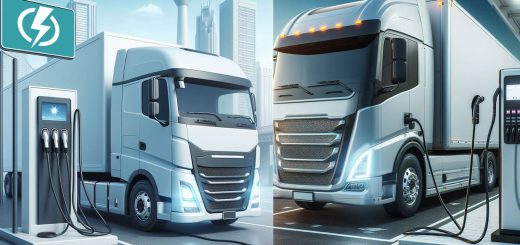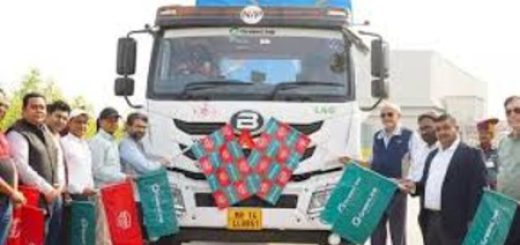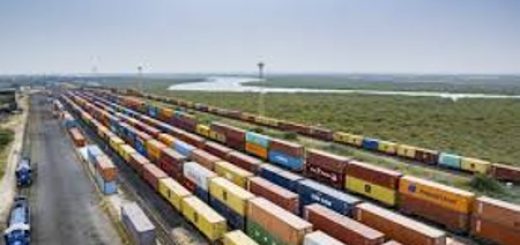Addressing Challenges in Indian Trucking: Drivers, Utilization, and Electrification
The Indian trucking industry plays a crucial role in the country’s economy by facilitating the transportation of goods over long distances. It ensures that goods are delivered to customers and businesses on time, promoting trade and commerce. However, this essential industry faces several obstacles that need to be addressed to foster its progress. The key aspects that require attention include driver concerns, maximizing truck utilization, expanding operations, and adopting alternative vehicle technologies.
Driver Issues:
The well-being of truck drivers and their families is a significant concern in the Indian trucking industry. Drivers often work under unhealthy conditions, putting in long hours with inadequate sleep, making them prone to fatigue and road accidents. Access to proper medical care and insurance coverage is limited, further exacerbating their vulnerability. Additionally, the societal stigma associated with the truck driving profession makes it challenging to recruit new drivers. Improving driver conditions through better pay, healthcare, and working conditions is essential for the industry’s sustainability.
Some companies, like the Jujhar Group, have taken a proactive approach to driver well-being. They offer health insurance coverage not only for their drivers but also extend benefits to their families. Such measures enhance driver loyalty, and job satisfaction, and reduce turnover rates, ultimately improving operational efficiency. The Jujhar Group’s approach highlights the importance of employers prioritizing driver welfare, setting a benchmark for the industry.
Truck Utilization:
Low levels of technology adoption in the Indian trucking industry have led to ineffective routing and underutilized capacity, resulting in high operational costs. Trucking companies aiming to increase efficiency should consider installing modern tracking systems that enable real-time monitoring of trucks and dynamic route optimization using sophisticated algorithms. These improvements can save money and increase customer satisfaction through timely deliveries.
Scalability:
The Indian trucking industry is characterized by numerous small fleet operators who face challenges in expanding their businesses due to inadequate financial resources. Achieving economies of scale can be facilitated by forming alliances or consolidating under larger entities. Furthermore, investments in infrastructure, including improved road networks and the construction of logistics parks, are crucial for the industry’s growth. Government initiatives and private sector investments can play a pivotal role in addressing these infrastructural challenges.
Also Read:- Driving Sustainability in Logistics: Three Innovative Companies Leading the Way
Electrification:
The most significant opportunity for the Indian trucking industry lies in electrification. With rising fuel prices and environmental concerns over emissions, there is growing interest in electric trucks. While the initial capital cost of electric trucks is higher, they offer lower operating expenses and better ecological ratings in the long run. However, the prospects of electrification are currently hindered by challenges such as inadequate charging infrastructure and the need for developing long-lasting and efficient batteries.
To capitalize on the opportunities presented by electrification, policymakers, and key industry stakeholders must collaborate to establish a pro-electric truck ecosystem. Since the development and deployment of electric trucks require substantial investment, and many implementation challenges are interrelated, a coordinated effort is crucial.
The Indian trucking industry finds itself at a crossroads, facing obstacles while simultaneously being presented with promising opportunities for advancement. To progress, it must address issues such as supporting truck drivers, optimizing truck utilization, expanding its scale, and embracing alternative vehicle technologies like electric trucks. Companies that prioritize the well-being of their drivers and set examples for the industry can influence broader change and drive the sector toward a more sustainable and prosperous future.
Reference By:- https://www.itln.in/




Recent Comments